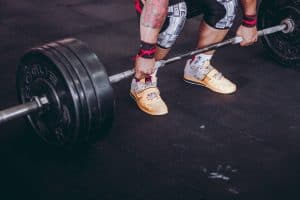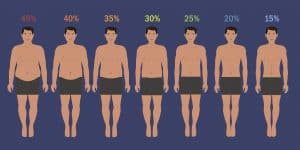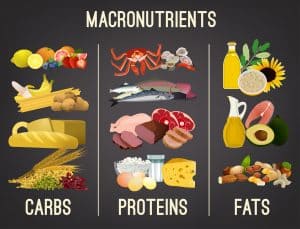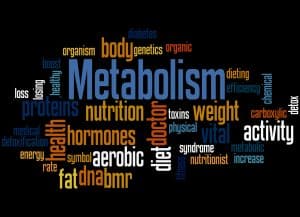The most underrated factor in muscle gain for any lifter or bodybuilder is …
Not training intensity.
Not caloric consumption.
It’s RECOVERY.
In order to reach your muscle gain potential as fast as possible, your muscles need to recover as optimal as possible.
You could consume supplements that help your muscles recover.
You could also get rid of tiredness before the workout.
But I’m talking about a strategy for a long sustained recovery.
In this post, I’ll share with you the 3 most important tips to recover FAST.
3 Most Important Muscle Recovery Tips
When you master the implementation of these tips, you will notice a significant improvement in your physique and strength.
1- Place your Carbohydrates and Amino Acids Intake Around Your Workout.
This means before, during, and after workouts.
I’ll explain why. But first, here’s an example of what a pre-workout meal should look like.
A. Pre-workout:
If you are male, 1 hour to 45 mins before the workout, consume a small meal that has:
- 25 – 30 g Protein
- 25 – 30 g Carbs
- 10 g Fats
If you’re female:
- 15 – 20 g Protein
- 15 – 20 g Carbs
- 6 g Fats
Notice, I didn’t include a huge amount of carbs or protein.
The point is you don’t want to get hungry during the workout.
The reason carbohydrates and fat should be included before the workout is as follows.
The carbohydrates will elevate your insulin levels.
The fats will slow down the glucose release into the bloodstream.
This way, the elevated insulin levels are maintained since you don’t want a spike-like elevation.
B. During Workout:
We explained in detail why you should have carbohydrates and amino acids during the workout in this post.
Your intra-workout should include:
- Pre-digested (or fast-acting) carbohydrates, like Cluster Dextrin.
- Full-spectrum of essential amino acids.
Now, why do you want this two supplementary nutrition during the workout?
The pre-digested carbs will not trigger a spike in insulin levels. It will only keep it elevated since the fat from the pre-workout meal will still be available in your bloodstream after the carbs from that meal have been exhausted.
The elevated insulin works to achieve two goals:
(i) Manage cortisol levels (a catabolic stress hormone).
(ii) Manage muscle breakdown.
The second is huge. Here’s why.
The muscle fibers consist of protein (or amino acids). This protein is balanced through two competing processes:
- Protein synthesis – muscle building
- Protein breakdown – muscle tearing/loss.
Muscle breakdown is greatest during and right after the workout and is a direct result of intense training.
The elevated insulin in the blood will transport the essential aminos and glucose into your muscle cells that become very receptive during the workout.
These nutrients now will quickly replace (or minimize, precisely speaking) the lost aminos/fibers.
Remember: as a weightlifter or bodybuilder, you want your protein synthesis to exceed protein breakdown.
C. Post-Workout:
As for a post-workout meal …
Relax.
You already have got the most important factors out the way.
Pre-workout meal, intense training, and intra-workout nutrition.
No need for an immediate meal right after the workout. No need for fast-digesting nutrients.
But, within an hour from the workout, you should consume a fully balanced meal.
Chicken, fish, or steak, and rice or potato.
In sum, taking care of nutrition during this workout window is really critical for avoiding muscle fatigue and for recovery.

2- Sleep Well.
Duh!
Sleep is a fascinating topic in itself. And while there is no universal agreement on how many hours a day you should sleep, 6-8 hours is the average you should get daily.
Sleep comes in cycles.
Non-Rapid Eye Movement (non-REM) followed by REM cycle. Then the cycle restarts again.
The non-REM phases are: awake, light, deep sleep.
The deep phase of the non-REM sleep is where the physical restoration and recovery takes place.
Your muscle fibers and bones are repaired and recovered, your immune system is strengthened, and your growth hormone production is greatest.
The REM phase is where the mental and cognitive activities take place.
It is recommended that you also take 1-2 hours of slumber during the day when possible to recharge your strength and mental focus.
3- Manage Stress.
Life gets in the way.
Bills to pay.
Kids to raise.
Maybe, a cheating girlfriend.
Or even social media trolls.
Stress is a tricky one.
It is kind of a mental game.
Its severity fluctuates among different types of personalities.
Some people are more chill than others during tough times.
Note that I said “manage” because it is not possible to eliminate stress entirely in your life.
What happens when you’re stressed out?
Your Cortisol levels increase. Yup, that nasty stress hormone.
And remain high.
What this does is release your protein and amino acids, not just carbohydrates, to become the main source of energy to fuel your body for physical activities.
That’s a no-no for muscle recovery.
Remember protein breakdown has to remain below protein synthesis in order to build muscles.
Whatever the case, sort out your problems.
Stay away from negative thoughts.
Get rid of negative people around you.
There you have it.
The three best tips for muscle recovery:
Nutrition in your workout window. Good sleep. And reduced stress.
If you manage these factors well, you will recover faster and train harder.
Get bigger and stronger.













